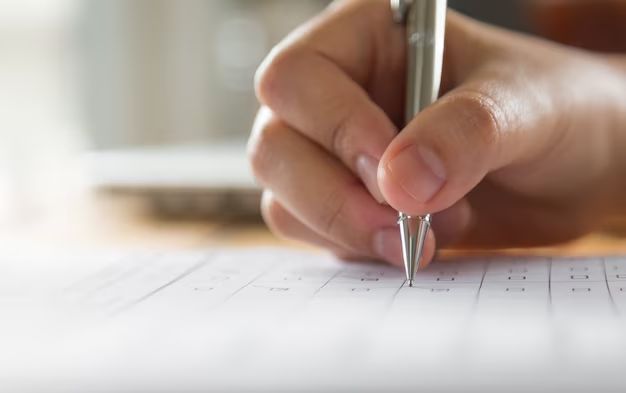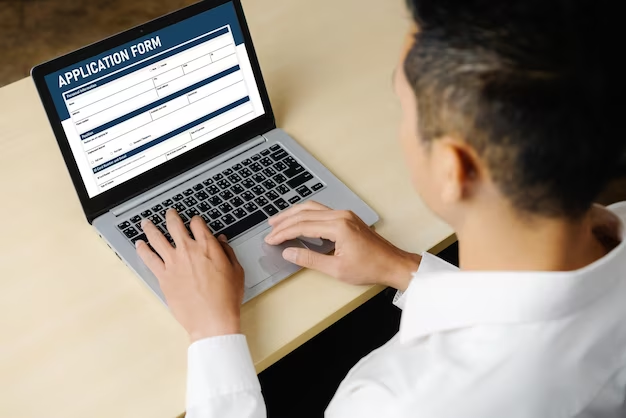The Buffalo firefighter exam is a crucial step for those looking to join the Buffalo Fire Department. This exam isn’t just a test of physical prowess; it assesses mental acuity, problem-solving skills, and commitment to community service.If you’re aspiring to join the ranks of Buffalo’s bravest, this is where your journey begins.
Anticipation for the Next Exam

One of the crucial steps in pursuing this honorable career is passing the Buffalo firefighter exam. To ensure you are well-prepared for this critical examination, let’s dive into the details.
Last Exam Recap
The last Buffalo firefighter exam took place on June 4, 2022. This is a vital piece of information to consider, as the exam schedule is not set in stone and can vary from year to year. The frequency of these exams plays a significant role in planning your preparation strategy.
Projected Schedule
Traditionally, the Buffalo firefighter exam occurs approximately every four years. Therefore, based on this pattern, it is highly likely that the next examination will be scheduled for 2026. However, it’s essential to note that this projection is not guaranteed, and it is crucial to stay updated with the latest information.
Stay Updated
To stay informed about the exact date and details of the next Buffalo firefighter exam, it is advisable to monitor the Buffalo Fire Department’s official website regularly. Additionally, pay close attention to local announcements and news sources, as they often provide timely updates related to firefighter recruitment and examination schedules.
Eligibility: Are You Ready?
Before you start preparing for the Buffalo firefighter exam, it’s essential to ensure that you meet all the eligibility criteria set by the Buffalo Fire Department. Let’s delve into these requirements:
- Age Requirements: Candidates must meet the age criteria specified by the department. Be sure to check the exact age requirement as it may vary, and you must meet this prerequisite before applying for the exam.
- Education: A high school diploma or its equivalent is usually a fundamental requirement. This educational qualification is essential to demonstrate your readiness for the responsibilities that come with the role of a firefighter.
- Residency and Other Requirements: In some cases, the Buffalo Fire Department may require candidates to be residents of Buffalo. Additionally, possessing a valid driver’s license is often a prerequisite, as firefighters may need to operate emergency vehicles. It’s essential to review the specific residency and other requirements carefully to ensure you are in compliance.
Exam Composition: Know What to Expect
The firefighter selection process typically comprises three main components: a Written Test, a Physical Ability Test (PAT), and a Personal Interview. To help you prepare effectively, we’ll delve into each component in detail.
Written Test
The Written Test assesses your cognitive abilities and knowledge in various areas relevant to firefighting. Here’s a breakdown of what it covers:
| Component | Key Aspects |
| Logical Reasoning | Evaluate your ability to think critically and make quick decisions during emergencies. May include scenarios that require you to prioritize tasks effectively. Tests your problem-solving skills under pressure. |
| Basic Firefighting Techniques | Focuses on fundamental firefighting knowledge, including terminology and procedures. Questions may cover topics like fire behavior, equipment usage, and fire suppression techniques. Requires a solid understanding of the firefighting fundamentals. |
| Situational Awareness | Measures your ability to assess and respond to changing situations. May include scenarios where you need to identify hazards and implement safety measures. Tests your capacity to maintain awareness in a dynamic environment. |
Physical Ability Test (PAT)
The PAT evaluates your physical fitness and ability to perform essential firefighting tasks. This portion of the selection process is demanding and requires rigorous preparation. Here’s what to expect:
- Tasks may include ladder climbs, hose drags, equipment carries, and simulated rescues.
- Emphasis on strength, endurance, and flexibility.
- Be prepared for a timed test with specific requirements for each task.
- Regular physical training is essential to meet the fitness standards.
Personal Interview
The Personal Interview assesses your communication skills and suitability for the role of a firefighter. It’s a crucial step in the selection process and often the final hurdle. Here’s what you should know:
- Interviewers will evaluate your interpersonal skills, teamwork, and problem-solving abilities.
- Questions may focus on your motivation to become a firefighter and your commitment to the role.
- Demonstrating professionalism and a positive attitude is essential.
Preparing for Success
Now that you understand the composition of the firefighter selection process, let’s explore how you can prepare effectively for each component.
- Study Guides: To excel in the Written Test, utilize study guides and materials that cover logical reasoning, basic firefighting techniques, and situational awareness. Official firefighting manuals and third-party resources can be invaluable in your preparation.
- Physical Training: For the PAT, prioritize your physical training. Focus on building strength, improving endurance, and enhancing flexibility. Specific exercises that mimic firefighting tasks can be particularly beneficial.
- Practice Tests: Familiarize yourself with the exam format by taking practice tests. Mock exams can help you become comfortable with the types of questions and scenarios you’ll encounter in the Written Test. Additionally, they can assist in managing time constraints.
- Interview Prep: Prepare for the Personal Interview by sharpening your communication and problem-solving skills. Practice answering common interview questions, and consider conducting mock interviews with friends or mentors to gain valuable feedback.
The Application Process

To help you navigate the application process effectively, we’ve broken it down into key steps.
Online Registration
The first step in the application process is to register online on the official Buffalo Fire Department website. This step is crucial, as it initiates your application. Follow these steps for a successful registration:
- Visit the Official Website: Access the Buffalo Fire Department’s official website by typing the URL into your web browser or searching for it using a search engine. Make sure you are on the authentic website to avoid potential scams.
- Create an Account: Look for the “Register” or “Sign Up” button on the website. Click on it and follow the prompts to create your account. You’ll need to provide basic information such as your name, contact details, and a secure password.
Complete Application
Once your account is set up, log in and start the application process. Be prepared to provide personal information, including your educational background and work history. Ensure that all information is accurate and up-to-date.
Submit Required Documents
The next step is to submit the necessary documents to support your application. These documents typically include:
- A copy of your high school diploma or equivalent certificate.
- Proof of any relevant certifications or licenses.
- A valid driver’s license.
- Any other documents specified by the Buffalo Fire Department.
Review and Confirm
Before finalizing your application, review all the information you’ve provided. Ensure there are no errors or omissions. Confirm that you’ve uploaded all required documents.
Submit Application
Once you are satisfied with your application, submit it through the online portal. You’ll receive a confirmation of submission, which may include a reference number for future inquiries.
Document Submission
The submission of required documents is a critical part of the application process. To ensure your application is complete and accurate, follow these guidelines:
- Organize your documents neatly, and make clear, legible photocopies.
- Ensure that all documents are up-to-date and not expired.
- Verify the specific document requirements on the Buffalo Fire Department website and double-check that you’ve included everything.
Fee Payment
Before submitting your application, it’s essential to be aware of the fee structure and potential waivers. Here’s what you need to know:
- Check Fee Structure: Visit the Buffalo Fire Department website or contact their administrative office to obtain the latest information on application fees. Fees may vary based on the position you’re applying for.
- Waivers: Some applicants may be eligible for fee waivers based on specific criteria such as military service or financial hardship. Check the department’s website for information on whether you qualify for any fee waivers and the application process for obtaining one.
Post-Exam Journey
Once you’ve completed the firefighter exam, your journey is far from over. Understanding the post-exam process is crucial for aspiring firefighters. This section will delve into what you can expect after taking the exam.
Results
Waiting for your exam results can be a nerve-wracking experience. Typically, results are announced a few months after the exam. Here’s what you need to know about this phase:
- Patience is Key: Be prepared to exercise patience as the grading process can take time, considering the volume of exams to be evaluated.
- Notification: You’ll receive a notification, either by mail or electronically, informing you of your exam results. Make sure to check your provided contact information regularly.
- Score Interpretation: Once you receive your results, you’ll need to interpret them. Pay close attention to your scores in various sections of the exam to identify areas of strength and weakness.
Further Assessments
Successful candidates will typically proceed to the next phase of evaluations, which often include medical and psychological assessments. Here’s what you should know about these assessments:
- Medical Evaluation: The medical assessment aims to ensure that you meet the physical health requirements necessary for the demanding role of a firefighter. It includes a thorough examination by a medical professional.
- Psychological Evaluation: This assessment assesses your mental and emotional fitness for the job. It’s crucial to ensure that candidates can handle the stress and challenges associated with firefighting.
Training Academy
Candidates who successfully pass the exams and assessments move on to the Training Academy. This phase is where you’ll receive intensive training to become a certified firefighter. Key points to consider:
- Rigorous Training: Be prepared for a physically and mentally demanding training program. It covers a wide range of firefighting skills, including equipment usage, fire suppression techniques, and emergency response procedures.
- Duration: Training at the academy typically lasts several months, during which you’ll undergo both classroom and hands-on training.
- Certification: Successful completion of the academy leads to certification as a firefighter, a significant milestone in your journey.
Compensation and Benefits
Understanding the compensation and benefits package offered to Buffalo firefighters is essential. Here’s a glimpse of what you can expect:
- Attractive Salary: Firefighters in Buffalo receive a competitive salary that reflects the demanding nature of the job and the importance of their role in the community.
- Benefits Package: The benefits package often includes health insurance coverage, pension plans, and additional perks. These benefits are designed to support your well-being and financial security throughout your career.
Conclusion
The question of when the next Buffalo firefighter exam will be is more than just about a date. It’s about preparing for a challenging and rewarding career dedicated to serving the community. Keep this guide as your reference, stay informed, and embark on your journey to join Buffalo’s finest. Your commitment today shapes your success tomorrow in the Buffalo Fire Department!
FAQ
When is the next Buffalo firefighter exam?
Expected around 2026. Check official sources for updates.
What are the eligibility criteria?
Age, education, residency, and physical fitness requirements apply.
How can I prepare for the exam?
Utilize study guides, engage in physical training, and take practice tests.
What does the exam entail?
It includes a written test, a physical ability test, and an interview.
What are the career benefits?
Competitive salary, health benefits, and job satisfaction.